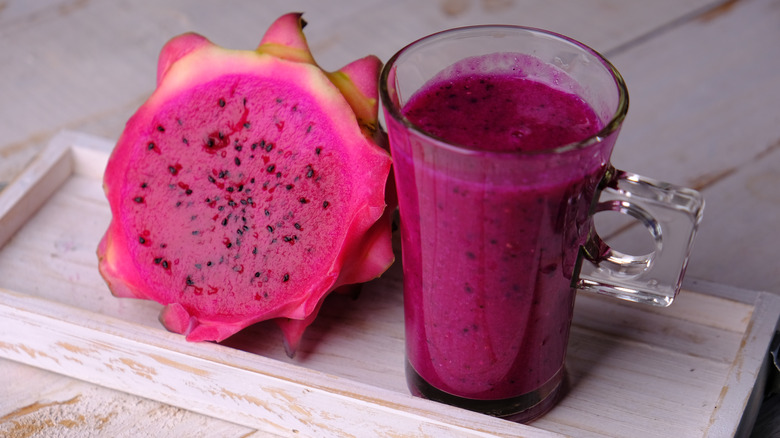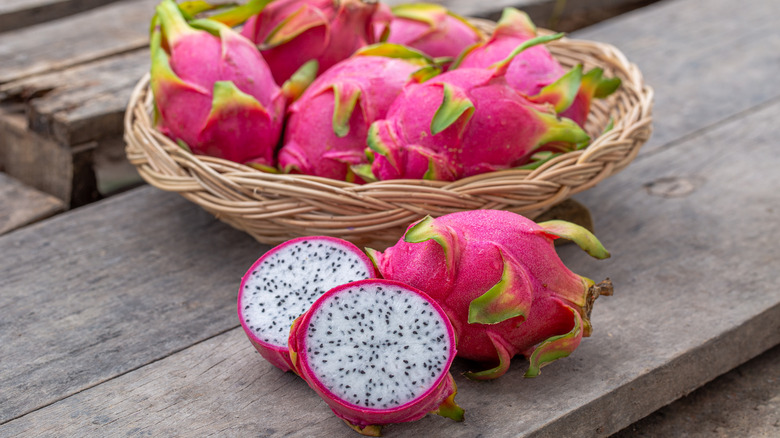Why You Should Eat More Dragon Fruit If You Are Diabetic
The dragon fruit (also known as Pitahaya) is a sweet, sour-tasting, egg-shaped fruit covered with large, wart-like bumps. It gets its name from its bizarre appearance, which is somewhat reminiscent of dragon skin. According to the Centre for Agriculture and Bioscience International, it's part of the Hylocereus species, a genus of plants belonging to the cactus family, which is native to South and Central America. Although the most cultivated type is the dragon fruit with white pulp and black seeds, other varieties include those with yellow pulps, according to Healthline.
In alternative medicine, the fruit is often touted for its health benefits, but is it good for people living with diabetes? It might seem quite promising, as it comes packed with a variety of beneficial vitamins and minerals. However, we recommend visiting a nutritionist or your doctor to rule out any potential allergies if you've never tried the fruit before.
The proven health benefits of dragon fruit
The development of type 2 diabetes makes the body less sensitive to insulin, which can lead to inflammatory reactions, per WebMD. According to a 2021 study published in the journal of Human Nutrition & Metabolism, dragon fruits contain betalains (such as betacyanins and betaxanthins). These compounds exhibit strong anti-inflammatory properties and have potential therapeutic uses.
The study also notes the antioxidant properties of betalains. In general, antioxidants are important for fighting free radicals in the body (via MedicalNewsToday). Although your body forms these highly reactive oxygen compounds during metabolic processes, free radicals are also formed due to harmful external influences. These include environmental pollutants and radiation. Too many free radicals create so-called oxidative stress. This, in turn, is suspected of causing conditions, such as cardiovascular disease and, in some cases, diabetes (per MedicalNewsToday).
A 2012 study published in the Sultan Qaboos University Medical Journal also suggested a connection between free radicals and diabetic complications. Oxidative stress was identified as a key component in the development of diabetic complications.
Dragon fruit's nutritional values
Dragon fruits are low in sugar and calories — they have an average of 60kcal per 100g. Not only is it a low-calorie snack, but it's also a good source of vitamins and minerals. WebMD notes that one 6-ounce serving of dragon fruit contains 4 milligrams of vitamin C, known for strengthening the body's defenses against infections caused by viruses and bacteria. Regular vitamin C consumption might also help reduce glucose levels, as suggested in a 2007 clinical trial published in the Indian Journal of Medical Research.
According to Healthline, dragon fruit also contains 7 grams of fiber per cup, almost a quarter of the recommended daily dose of 25 grams. The Mayo Clinic also notes that eating more fiber can help lower the risk of diabetes. The Centers for Disease Control and Prevention further supports this notion, suggesting that fiber helps with blood sugar control and weight management. When consumed, fiber doesn't cause blood sugar levels to spike as high carbohydrate foods do. This slow rise in blood sugar benefits people with diabetes, which is why many doctors and nutritionists recommend getting enough fiber.



